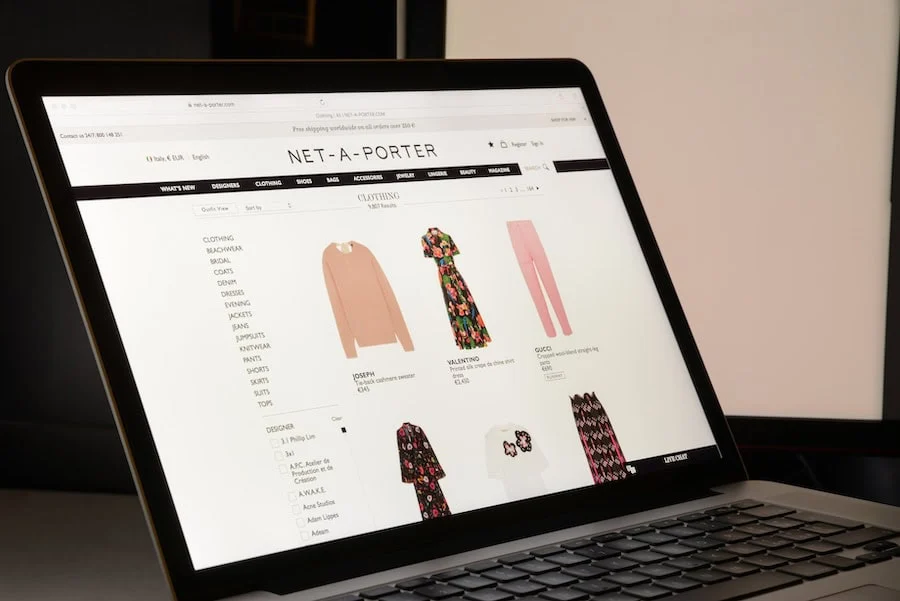Net-a-Porter’s Beauty Shake-Up: What It Means for Luxury Affiliates and Content Commerce

In the world of luxury e-commerce, few names carry the cachet of Net-a-Porter. For over two decades, it has set the standard for online fashion and beauty, blending editorial storytelling with high-end retail like no one else.
But even iconic names need to evolve.
Last week, Vogue Business broke the news that Net-a-Porter is significantly shaking up its beauty offering, consolidating its beauty business under the umbrella of Yoox Net-a-Porter’s wider strategy. The move includes scaling back some brand partnerships, shifting resources, and — most notably for our world — rethinking its approach to content and affiliate-driven sales in the beauty category.
It’s a move that’s raising eyebrows across the luxury marketing and affiliate landscape. Because when a pioneer like Net-a-Porter pivots, it often signals something bigger.
So, what’s really changing? Why does it matter? And what are the pros and cons — particularly for affiliate marketers and content publishers who rely on luxury beauty as a high-margin niche?
Let’s dig in.
The Shake-Up: What We Know
According to industry insiders and official statements, Net-a-Porter is:
- Consolidating beauty under Yoox Net-a-Porter (YNAP)’s broader operational umbrella
- Streamlining the number of beauty brands it stocks
- Reallocating marketing spend from editorial-led discovery to performance-led channels
- Increasing alignment with sister site Mr Porter and Farfetch, which acquired a stake in YNAP in late 2023
While this might sound like internal housekeeping, it’s actually a significant shift in how beauty is positioned — especially when it comes to content strategy and affiliate relationships.
The Pros: Why This Could Be a Smart Move
1. A Leaner, More Curated Offering
Net-a-Porter made its name by offering editors’ picks, not just shelves of product. A tighter edit of brands and SKUs may actually help reposition its beauty department as a premium, selective experience – rather than competing with mass-market giants like Sephora or Amazon.
This could benefit affiliates who focus on luxury content, as it sharpens the brand’s identity and makes their links more distinctive.
2. Performance Marketing Focus
The move toward performance-led marketing suggests Net-a-Porter is finally giving more attention to what converts – not just what looks good. This opens up opportunities for top-tier affiliates, influencers, and content creators with proven traffic and loyal audiences.
If the affiliate programme is aligned properly, this could mean higher commissions and better support for partners who can drive real sales.
3. Stronger Alignment Across YNAP Brands
With Farfetch now in the mix, there’s an opportunity to create shared data strategies, smarter personalisation, and cross-brand campaigns. Beauty affiliates might see enhanced targeting tools, co-branded promotions, or bundled offers that increase AOV.
The Cons: What Affiliates Should Be Wary Of
1. Fewer Products, Fewer Links
A more curated beauty inventory also means fewer affiliate linking opportunities. If your site or content relies on a wide range of long-tail products, Net-a-Porter may no longer be the go-to source for deep discovery.
Some affiliates could lose traffic or commissions if their top-linked items are removed from stock.
2. Editorial Cutbacks
Net-a-Porter has long been admired for its in-house editorial voice. The “Beauty Memo” was once one of the best examples of commerce-meets-content done right.
If the shake-up means a reduced editorial budget or fewer content collaborations, that could weaken the brand’s affiliate strategy. In the luxury world, storytelling is still everything — and affiliate partners often build their own stories around trusted retailer narratives.
3. Uncertainty During Transition
Any structural change within a platform – especially one involving acquisitions and strategic realignment – can introduce operational hiccups. Delays in commission payments, affiliate tracking bugs, or changing programme terms are all risks during a shift like this.
Smart affiliates will diversify during this time and monitor performance closely.
What It Says About the Future of Luxury Affiliate Commerce
This shake-up reflects a broader truth in the luxury space: beauty is no longer a side dish — it’s a strategic category.
Luxury retailers are increasingly under pressure to prove ROI on every channel. As customer acquisition costs rise, affiliate marketing is stepping out of the shadows as a powerful — and trackable — growth lever.
But with that comes a tougher stance on performance. Brands like Net-a-Porter are no longer content to look pretty. They want results.
For affiliates and content creators, this means:
- Aligning with the brand’s editorial values is no longer enough — you need to convert
- Curated, expert-driven content will outperform shallow product lists
- Relationships with affiliate managers and brand partners will matter more than ever
Final Thought: Opportunity in the Shake-Up
Net-a-Porter’s beauty overhaul might be a challenge for some — especially those who relied on its old model of high editorial spend and wide inventory.
But for affiliates who lean into quality content, performance tracking, and relationship-building, it’s also an opportunity.
As luxury e-commerce grows more data-driven, the winners will be those who can marry style with substance, and influence with impact.
Because in 2025, even the most elegant brands still have to perform.
Are you interested in what’s next for the industry, tips on how to always remain proactive and making sure that you never miss an insight that could boost your performance? Join Affiverse’s newsletter here






